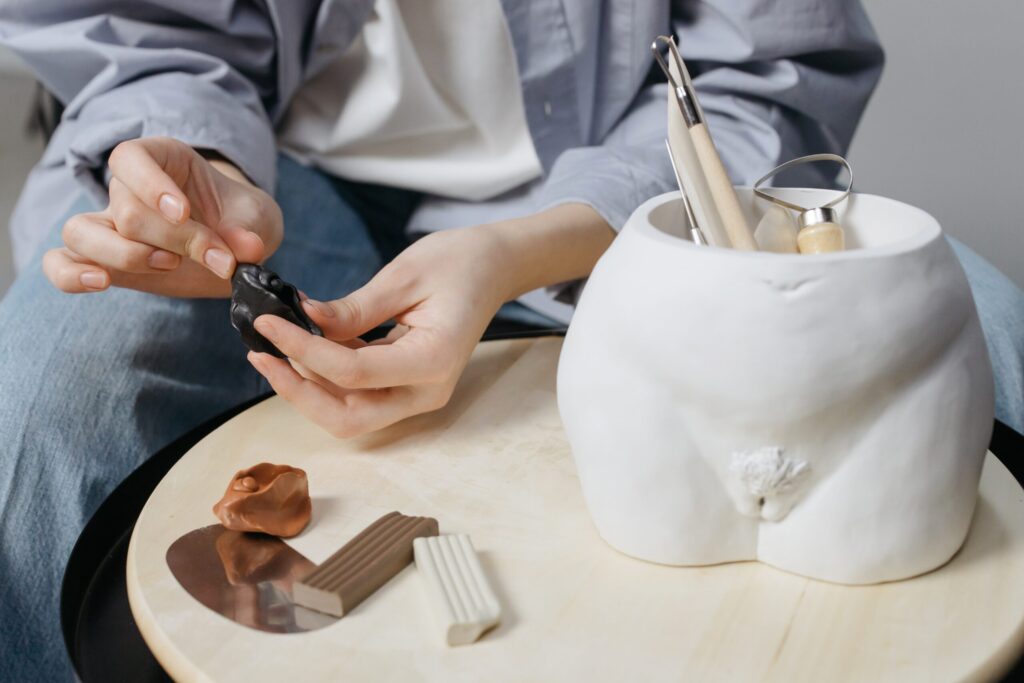Microbes vs. menopause: a winning strategy for urogenital health
When we discuss the microbiome, our minds often jump to the gut microbiome. However, the vaginal microbiome also undergoes remarkable changes during menopause. These transformations can result in uncomfortable issues like dryness, irritation, and incontinence and may even raise concerns about cancer risk. So, what can you do to tackle these shifts in your vaginal microbiome and ensure a smooth transition through menopause? Let’s dive into this important topic in today’s article.

Think of the vaginal microbiome as a bustling city filled with diverse microorganisms, mainly bacteria. They play a pivotal role in maintaining your vaginal pH, warding off infections, and supporting your reproductive health. Before menopause, your vaginal microbiome is often ruled by Lactobacillus species, the good bacteria that create an acidic environment to keep harmful pathogens at bay. However, this balance is disrupted during menopause.
Microbial shifts during menopause as a cause of genitourinary syndrome
As you navigate menopause, your body experiences significant hormonal changes, including a drop in estrogen levels. This change raises the vaginal pH, creating a less friendly environment for those friendly lactobacilli. They give way to other microorganisms, some less beneficial and, at times, potentially unsafe ones like Gardnerella, Prevotella, Anaerococcus, Peptoniphilus, and Peptostreptococcus.
These microbiome shifts, according to scientists, lead to a range of unwelcome consequences. Vaginal dryness worsens, the risk of irritation and microtrauma increases, and the threat of urinary tract infections and incontinence looms. This cluster of symptoms is collectively known as “genitourinary syndrome.” Moreover, certain shifts in the uterine microbiome, such as the presence of Porphyromonas somerae, could act as markers for endometrial cancer risk in specific groups of women.
The good news is there are strategies women can employ to support their vaginal health during menopause.
BHRT, isoflavones, or probiotics: what works best for vaginal health
These strategies include the use of bioidentical hormone replacement therapy (BHRT) to address estrogen deficiencies. Soy isoflavones, theoretically, can also be employed to smooth estrogen shifts and create a favorable environment for Lactobacillus. Additionally, Lactobacillus probiotics can help promote a healthy vaginal microbiome. Which of them, or the combination, can give us the better result?
In recent clinical trials, scientists tried to answer this question. They split the women into three groups and gave them different things to see what worked best.
The first group got isoflavones from soy by themselves. The second group got isoflavones along with some helpful bacteria (L. acidophilus, L. casei, Lactococcus lactis, Bifidobacterium bifidum, and Bifidobacterium lactis), and the third group got hormone therapy, which included estrogen.
Here’s what they found: the women in the estrogen therapy group saw the most prominent improvements in their vaginal pH (the acidity) and the levels of Lactobacilli bacteria. These changes made their vaginal health more like it was before menopause. So, it seems like restoring estrogen levels is the key to helping with these changes during menopause. Which is also interesting, there’s no need to take pills. Researchers found that using estrogen cream also helped to increase the levels of Lactobacilli bacteria.
Soy isoflavones alone haven’t demonstrated significant effects, although some women reported improvements in vaginal dryness after using them.
But what about probiotics? In another study, scientists studied them more carefully. They gave women probiotic pills containing specific strains of lactobacilli for two weeks. The results were really promising because these probiotics seemed to do a great job in keeping the vaginal microbiome healthy.
So, the vaginal microbiome goes through remarkable changes during menopause, and understanding these changes is crucial for your overall health and well-being. There are multiple options to restore the microbiome and vaginal health during menopause, like BHRT, estrogen cream, and probiotics. Skilled health coaches and medical professionals will assist in tailoring the optimal combination of approaches to help maintain overall well-being throughout the menopausal transition.
Book your complimentary discovery call
Fancy a diet make-over? Our 12-week programme uses real-time blood glucose monitoring, tailored nutrition, and hormone balancing to help you regain control of your diet and vitality during menopause.
